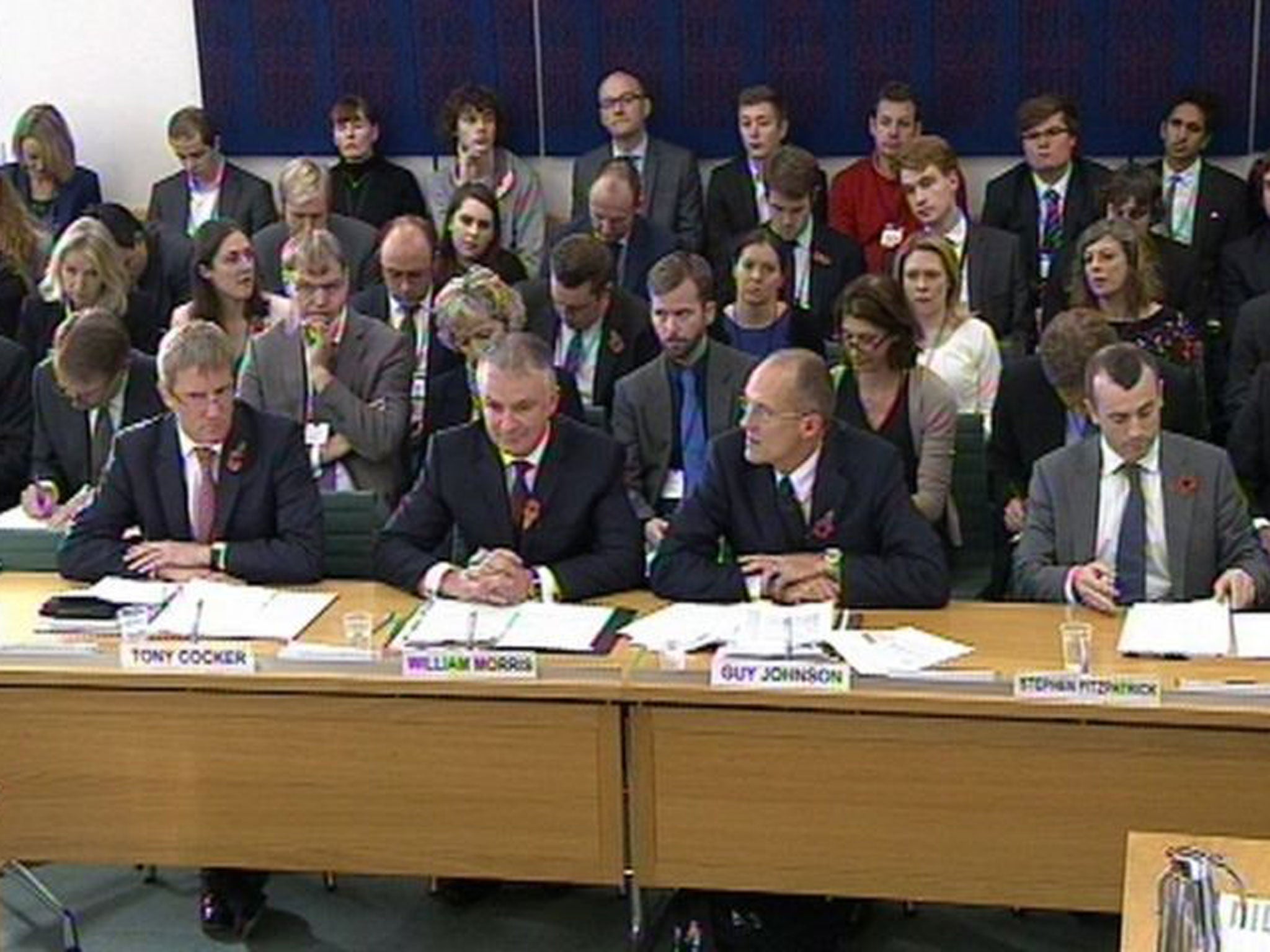The Big Six in front of MPs: This was supposed to be a grilling, but even Russell Brand would have struggled to give one
Nationalising the energy industry will not make electricity bills magically cheaper


The trouble with russellbrandism, in one easy-to-understand afternoon session. The energy company bosses were lined up in front of the tribunes of the people for their ritual, cathartic humiliation, and failed resolutely to be humiliated. If Brand had been there, he would have disappeared into his self-combusting rhetoric, unable to decide whether to condemn the MPs or the fat-cat capitalists in the more colourful language.
For normal people, with a passing sympathy for Brand’s summons to revolution, the energy bosses would have been the more pressing target at which to rant. The voice of the people in this case was a northern Labour MP (Ian Lavery) who asserted in a loud and cross voice that energy company profits were “unfair” because some people couldn’t afford to pay their bills.
That is the sort of statement that makes less sense the more you think about it, and the trouble with select committee hearings is that they give people a lot of time to think about things, including, “I wonder how long this is supposed to go on?”
Normal people don’t have to sit through select committee meetings, but I suspect that most of us have an understanding of market economics that works at two levels. Level one is that prices seem to go up a lot, don’t seem to go down when world prices go down, and that the bosses of a lot of companies seem to get paid an awful lot, which doesn’t seem to go down if their companies do badly. But level two is that nationalising the energy industry would not make gas and electricity bills magically cheaper.
People do not have to sit through an afternoon’s committee meeting to know this. But anyone suffering from a touch of russellbrandism would learn it quickly enough if they had to listen to energy company executives talking about “buying ahead on a 24-month curve”. All the jargon and percentages cannot obfuscate the laws of economics. A 5 per cent profit margin is roughly what Tesco makes in a ferociously competitive grocery market, dominated by a Big Four, not even a Big Six. The rest is decoration.
If some people switch to a cheaper tariff, other people will pay by being too intimidated to fill in some forms on the internet. If the Government decides to take the help for old people to insulate their houses off the bills, it will have to be paid for by taxes instead. The green taxes could be reduced or abolished, but everyone on level two thinks that a few windmills or solar panels are a good idea, and anyway they are a tiny part of the bills - the pure green taxes account for only about 2 per cent.
The only people who really gained from this afternoon’s session were Ovo, one of the new entrants to the energy supply market, whose salesman - I mean managing director - Stephen Fitzpatrick used it to advertise his prices as being 12 per cent lower than his rivals’. Thus a people’s trial set up to vent revolutionary fervour at the expense of the energy company bosses was co-opted by the creative life-force of capitalism to sell us another product.
Join our commenting forum
Join thought-provoking conversations, follow other Independent readers and see their replies
Comments